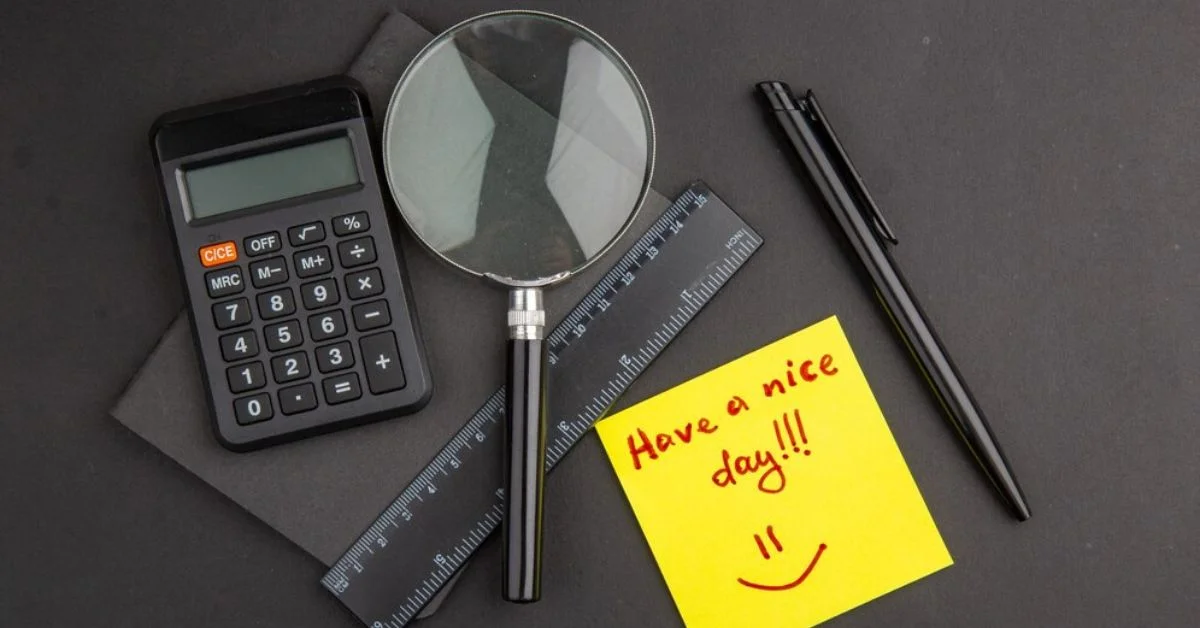LAW
All About Personal Injury Law: A Comprehensive Guide

Key Takeaways:
- Personal injury law is broad and involves a meticulous process to receive just compensation.
- Legal guidance is crucial in navigating time-sensitive issues and dealing with negotiations.
- The digital era, mainly social media, profoundly affects the dynamics of personal injury claims.
Table of Contents:
- What Constitutes Personal Injury?
- The Legal Process of Filing a Personal Injury Claim
- Statute of Limitations: Time Constraints in Personal Injury Cases
- The Role of a Personal Injury Lawyer
- Economic vs. Non-Economic Damages
- Negotiating Settlements in Personal Injury Cases
- Insurance Companies and Personal Injury Claims
In a world fraught with unforeseen accidents and injuries, understanding the nuances of personal injury law becomes useful and essential for securing fair treatment and compensation. This area of law encompasses many situations where individuals may find themselves hurt due to someone else’s carelessness or intentional actions. It is an arena where the injured party seeks to establish proof of the other’s negligence, arguing that it led to their harm. The ensuing legal battle demands expertise and a strategic approach, beginning with determining the type of proceedings or negotiations one should pursue. Legal websites, such as caddellreynolds.com, offer insight into the wide spectrum of personal injury cases, guiding those who, unfortunately, need to claim restitution for their losses.
What Constitutes Personal Injury?
Conceptually, personal injury is a legal terminology referring to harm caused to an individual’s body, mind, or emotional well-being, as opposed to damage to property. Such harm often stems from accidents on the road, workplaces, public spaces, or from using defective products. However, determining personal injury constitutes a deep dive into legalese and the negligence doctrine. In legal terms, negligence refers to an individual or entity’s failure to take due care, which could reasonably prevent harm to others. A clear understanding of this foundational concept is imperative for those seeking justice in such cases.
The Legal Process of Filing a Personal Injury Claim
Filing a personal injury claim unfolds in distinct stages, starting with the incident itself. The victim or plaintiff must then gather and document evidence such as photographs, witness testimonies, and official reports to substantiate their accusations. As the claim takes shape, it’s essential to understand the importance of each piece of evidence and its potential impact on the claim’s credibility. From there, one must draft and file legal documents appropriately, culminating in either settlement negotiations or a court trial if a settlement cannot be reached. Legal practitioners experienced in the field can offer invaluable advice every step of the way, ensuring that nothing is overlooked.
Statute of Limitations: Time Constraints in Personal Injury Cases
A lesser-known but critical aspect of personal injury claims is the statute of limitations. This legal construct sets the maximum time after an event within which legal proceedings may be initiated. Time is of the essence since the clock starts ticking not from the day you decide to pursue a claim but from the day the injury occurs or, in some cases, the day it’s discovered. Failure to act within this period can eliminate legal recourse rights. Hence, understanding and complying with this time-bound framework is a prime consideration in upholding one’s legal rights.
The Role of a Personal Injury Lawyer
Entrusting your personal injury case to a competent and skilled lawyer can be your most strategic decision. Legal representation isn’t just about formulating arguments; it’s about having a tenacious advocate well-versed in procedural formalities, evidentiary requirements, and negotiation. Your chosen counsel becomes a personal ally dedicated to amplifying your voice in a legal system where complexity could otherwise overshadow your claim. A personal injury lawyer is a strategist and educator, empowering clients with legal knowledge pertinent to their cases.
Economic vs. Non-Economic Damages
A judgment or settlement will make the plaintiff ‘whole’ again at resolving a personal injury case. This compensation, referred to as damages, is categorized into economic and non-economic damages. Economic damages cover quantifiable losses, such as medical expenses, lost earning capacity, and property damage. Non-economic damages, on the other hand, are less tangible and encompass pain and suffering, emotional distress, and loss of life’s enjoyment. While numerical calculations can assess economic damages, placing a value on non-economic damages is subjective and requires a perspicacious lawyer to argue convincingly for fair compensation.
Negotiating Settlements in Personal Injury Cases
The settlement phase of a personal injury case is nuanced and sometimes as intricate as the legal proceedings themselves. Negotiation is a delicate balance between what’s fair and feasible, and it requires an intelligent understanding of the law and the opponent’s tendencies. Mastering the intricacies of legal negotiation techniques could significantly sway the final settlement amount. It’s typically in the client’s best interest to avoid the uncertainties of a trial by reaching an amicable and equitable settlement through savvy discussion and mutual agreement.
Insurance Companies and Personal Injury Claims
The role of insurance companies in personal injury cases is significant and multifaceted. In most instances, these companies are the ones from whom compensation will be sought. While their initial offers may seem fair, they are often calculated moves to minimize payouts. Insurance adjusters are well-trained in tactics that reduce their financial liability; thus, understanding how to approach these negotiations is essential. Knowledgeable legal representation is vital to ensure that the settlement discussions accurately reflect the full extent of the damages suffered.
In summary, personal injury law is intricate and layered, demanding that those affected engage actively and persistently in their quest for fairness and compensation. The legal complexities highlight the necessity of seeking specialized counsel who can offer guidance tailored to each case’s unique aspects. Awareness and preparedness are key, as the individual steps within the claim process are consequential and often irreversible.
LAW
Strategic Trust Planning for Fortified Asset Protection

Table of Contents
- Key Takeaways
- Comprehensive Overview of Asset Protection Trusts
- Deciphering the Legal Framework Surrounding Trusts
- Best Practices for Establishing Trusts
- Selecting the Right Assets for Your Trust
- Additional Advantages of Trust Formation
- Navigating the Considerations and Limitations of Trusts
- Why Professional Advice is Critical in Trust Management
- The Lasting Significance of Trusts in Asset Management
Key Takeaways
- Trusts are practical tools for creating a barrier against creditors and safeguarding your assets.
- Tailoring your trust according to state-specific laws and asset types is necessary for it to serve its purpose fully.
- While trusts provide numerous benefits, they also have certain restrictions that must be prudently evaluated.
- Professional legal and financial advice is paramount in navigating the complexities inherent in trust management.
Comprehensive Overview of Asset Protection Trusts
Domestic Asset Protection Trusts strike a balance between asset protection and flexible control. Adequate asset protection is proactive and comprehensive. A solid plan can ensure that assets remain secure under the trust’s guidelines. Robust asset protection strategies integrated with estate planning goals can achieve comprehensive security for financial legacies.
Deciphering the Legal Framework Surrounding Trusts
Trusts are legal arrangements that protect assets. To be effective, they must comply with complex laws that vary across states and change over time. A trustee with expertise and integrity plays a critical role in managing trusts, balancing compliance with legal requirements, and managing assets. The most important thing is that the trustee’s actions aim to preserve and enhance the value of the trust assets for the beneficiaries.
Best Practices for Establishing Trusts
Building trust requires a personalized approach considering an individual’s financial situation and goals. Choosing the right trust and accurately funding it is crucial for its effectiveness. Trusts must adhere to legal standards and be executed correctly, requiring the guidance of legal professionals. Mistakes in the trust creation process can have severe consequences, emphasizing the need for thorough preparation and compliance with legal requirements.
Selecting the Right Assets for Your Trust
A customized strategy is required to protect various assets through a trust. This strategy should cater to the specific protection needs of each asset type. Transferring assets into a trust should be approached carefully to ensure adequate protection within the trust’s structure.
Additional Advantages of Trust Formation
Trusts offer advantages for financial and estate planning. They protect assets, minimize estate taxes, maintain family privacy, and control wealth distribution. Trusts provide peace of mind by reducing administrative burden and ensuring that the legacy left behind reflects the grantor’s intentions for their family’s future.
Navigating the Considerations and Limitations of Trusts
Trusts offer benefits but also have limitations. Laws restrict access and control over trust assets, which may be challenging for those used to manage assets directly. Trusts may have stipulations on distributions, investments, and beneficiary rights, which should align with the grantor’s goals. Irrevocable trusts offer protection but require the grantor to relinquish control over assets. Finding the right balance between power and safety is crucial when considering an irrevocable trust as part of an asset protection strategy.
Why Professional Advice is Critical in Trust Management
Trust law is complex and requires expert guidance for trusts and estate planning. Professionals in this field ensure compliance with legal statutes, protect assets, and meet wealth management goals. Their advice is essential for drafting the trust document, selecting a trustworthy trustee, and strategically funding the trust.
The Lasting Significance of Trusts in Asset Management
Trusts are essential for wealth preservation and estate planning. Domestic Asset Protection Trusts provide specialized security for individual needs and long-term objectives. Trusts offer a regulated structure for managing wealth with foresight and intention. Although complex, a well-devised trust strategy can be highly beneficial. Professional expertise and strategic planning can turn trusts into a cornerstone of financial resilience and legacy building.
LAW
A detailed guide on Tax refund for tourists’ schemes in the UAE

While staying in the UAE, tourists have the opportunity to claim a refund on the Value Added Tax (VAT) for goods they purchase. This initiative was elucidated by the Federal Tax Authority in 2018. This article serves as a detailed guide on the VAT refund schemes available to tourists in the UAE.
Whether you are a visitor exploring the country or delving into business and career prospects, seeking assistance from VAT Registration UAE’s tax experts is always advisable. The VAT refund process for tourists in the UAE operates through an electronic system, which was established following the implementation of VAT by the FTA.
It is important to note that this refund scheme solely pertains to traders registered under the “Tax Refund for Tourists Scheme.” Only those affiliated with this scheme are eligible to receive VAT refunds. Understanding the procedure for claiming a VAT refund for tourists in the UAE, as well as how travellers can retrieve VAT payments from their accounts, is essential.
The implementation of the tax refund for tourists in the UAE
The tax refund system for tourists in the UAE is subject to particular conditions that dictate when and how refunds can be claimed. These conditions outline the eligibility criteria and important dates for refund requests:
- The retailers participating in the Scheme will be required to initiate refund claims to tourists as of 18th November 2018.
- The overseas tourists can claim their VAT refunds at Abu Dhabi International Airport, Sharjah International Airport or Dubai International Airport as of 18th November 2018.
- Lastly, overseas tourists also have the option to claim their VAT refunds at the land ports and seaports, applicable as of 16th December 2018.
Purchase procedures applicable for VAT refund for tourist schemes in the UAE
The purchase procedure is as follows when a customer intends to purchase from the retailer under the tax refund for tourist schemes:
- Whenever a retailer gets a purchase request from a tourist under the tourist refund scheme, the retailer must perform a check for the following eligibilities: –
- According to clause 3 of Article 68 of the Cabinet Decision No. 52 of 2017 referred thereto, the client is an Overseas Tourist who was present in the State at the time of the Goods purchase and who is present at the retail establishment with purchase receipts.
- When asking for a refund claim form to be issued. The retailer should also ensure that the supply of goods was made within 90 days, not exceeding 90 days from when the issuance of refund documents was requested.
2. The customer and purchase details must be maintained per the details specified by the FTA and the Operator.
3. The required documents must be issued to the customer to claim their VAT refund on exporting the goods.
4. Depending upon the requirement of some goods and their categories, the retailer must ensure that the goods are packed well to ensure smooth handling and delivery to the customer in their home country.
5. Any other conditions, if the retailer should also meet any, to ensure accordance with the agreement approved by the retailer for providing a tax tax-free purchase service.
For any further queries relating to the purchase requirements for tax refunds for tourist schemes in the UAE, you must contact the tax consultant in dubai for their invaluable guidance and support.
Export procedures to be adhered to by the operators for tax refunds for tourist schemes in the UAE
The operators of the tax refund schemes for tourists must ensure that the tourists claiming the refund are for the goods that have been exported within 90 days from the date of supply. If not, then the refund claims must be rejected. He is also supposed to verify that the exported goods and the refund claim align with the criteria the authority agreed upon. Also, if the authority has consented, the Operator can appoint a third party to verify on his behalf. VAT consultants in the UAE are always for any assistance at your service.
Applicable fees and refunds under the tax refund for tourist schemes in the UAE
The authority has been allowed to charge a service fee to the overseas customers as follows-
- An administrative fee of 15% of the total VAT refund amount claimed.
- A fixed fee of AED 4.80 per refund claim.
The Operator can also deduct the fee from the amount that the overseas tourist is supposed to get back as a refund from the FTA. The point to note here is that the cash VAT refund amount will have a cap of AED 10,000 per tourist per day (24 hours).
Also, When an Overseas Tourist claims a refund from a Taxable Person, the tax will not be reimbursed under the Scheme for any claim if the value of the tax-inclusive purchases made from that Taxable Person is not AED 250 or higher.
Any doubts related to fees can be clarified through VAT consultants in the UAE.
Goods that do not fall under the tax refund schemes in the UAE
The following goods are not included in the refund scheme for tourists in the UAE
- The goods or items not carried by the tourists when they leave the country.
- The goods that have been consumed fully or partially in the state of any other implementing state.
- Motor vehicles, aircraft and boats.
Considering the above points, the tourist tax refund guide might look complicated to the visitors. Therefore, they must find some tax consultants in the UAE who can help them solve their queries and guide them in claiming their refund. They will also help you identify the goods eligible for tax refunds under this Scheme.
Engage the Expert Services of VAT Registration UAE
The tax consultants and VAT experts in the UAE, accessible through VAT registration UAE, stand ready to assist you in claiming VAT refunds should you decide to depart the UAE following your vacation. Reach out to us today to gain clarity on the VAT refund process in the UAE, including how tourists can seek refunds on purchases made during their stay. Thus, contact us today and we shall be glad to assist you.
LAW
How Tax Planning Can Help You Achieve Your Financial Goals

Let’s face it, nobody enjoys paying taxes. But what if there was a way to make the process less painful and leverage it to your advantage? This is where tax planning comes in that makes paying taxes easier.
Tax planning is the proactive process of analysing your financial situation to minimise tax liability while staying compliant with the law. It’s about understanding and using the tax code to your benefit, freeing up more money to achieve your financial goals.
Why is Tax Planning Important?
Financial goals come in all shapes and sizes, from saving for a dream holiday to building a comfortable retirement nest egg. Regardless of your specific goals, taxes can significantly impact how much money you have left over. Effective tax planning helps you keep more of your hard-earned cash, accelerating your progress towards achieving your financial dreams.
Here are some of the key benefits of tax planning:
- Reduced Tax Liability: The primary goal of tax planning is to minimise the tax you owe. By taking advantage of deductions, credits, and other tax-saving strategies, you can legally reduce your tax bill and keep more money in your pocket.
- Increased Savings and Investment: The money you save on taxes can be redirected towards your savings and investment goals. This allows you to grow wealth faster and achieve your financial objectives sooner.
- Improved Financial Security: Effective tax planning can help you build a strong financial foundation. You can create a more secure future for yourself and your family with a lower tax burden.
- Peace of Mind: Knowing your taxes are under control and that you’re compliant with the law can provide significant peace of mind. Tax planning helps avoid penalties and interest charges associated with late or inaccurate tax filings.
How Does Tax Planning Work?
Tax planning is an ongoing process that should be reviewed and adjusted regularly. Here’s a general overview of the steps involved:
- Gather Your Financial Information: The first step is to gather all your relevant financial information, including income statements, receipts for deductions, and investment records. This will give you a clear picture of your financial situation.
- Understand Your Tax Bracket: Your tax bracket is crucial for tax planning. It determines the rate you’ll pay on your taxable income.
- Identify Deductions and Credits: A wide range of deductions and credits can reduce your taxable income. Common deductions include work-related expenses, charitable donations, Research the deductions and credits that may apply to your specific situation.
- Develop Tax-Saving Strategies: You can develop tax-saving strategies based on your financial situation and goals. This might involve maximising contributions to retirement accounts, deferring income, or harvesting capital losses.
Key Tax Planning Strategies for Individuals
Here are some general tax plannings strategies that individuals can consider:
Maximise Contributions to Retirement Accounts: Contributions to traditional IRAs and 401(k) plans typically reduce your annual taxable income. Additionally, the earnings within these accounts grow tax-deferred until withdrawal in retirement.
Utilise Deductions: Depending on their circumstances, taxpayers can claim various deductions. Some common deductions include medical expenses, charitable contributions, and mortgage interest. Keeping detailed records of expenses throughout the year is crucial for claiming these deductions.
Consider Capital Gains Harvesting: If you have investments that have decreased in value, you may be able to sell them to offset capital gains from other investments. This can help reduce your overall tax liability.
Seek Professional Help: The tax code can be complex, and laws can change frequently. Consider consulting with a qualified tax advisor to ensure you’re taking advantage of all available tax benefits and complying with all tax regulations.
Conclusion
Tax planning is an essential part of any sound financial plan. By being proactive and taking advantage of available tax-saving strategies, you can keep more of your hard-earned money and achieve your financial goals faster. Remember, tax planning is not about evading taxes but rather about using the tax code to your advantage within the legal boundaries. Taking control of your tax situation can pave the way for a brighter financial future.

 TECHNOLOGY4 months ago
TECHNOLOGY4 months agoBlog Arcy Art: Where Architecture Meets Art

 ENTERTAINMENT2 weeks ago
ENTERTAINMENT2 weeks agoExploring the Kristen Archives: A Treasure Trove of Erotica and More

 LIFESTYLE4 months ago
LIFESTYLE4 months agoThe Disciplinary Wives Club: Spanking for Love, Not Punishment

 LIFESTYLE2 weeks ago
LIFESTYLE2 weeks agoWho Is Sandra Orlow?

 GENERAL3 days ago
GENERAL3 days ago5 Factors That Affect Tattoo Removal Success

 ENTERTAINMENT8 months ago
ENTERTAINMENT8 months agoYuppow: Your Free Source for Movies and TV Shows

 ENTERTAINMENT1 week ago
ENTERTAINMENT1 week agoKiss KH: The Streaming Platform Redefining Digital Engagement and Cultural Currents

 HOME IMPROVEMENT5 days ago
HOME IMPROVEMENT5 days agoGet Your Grout to Gleam With These Easy-To-Follow Tips












